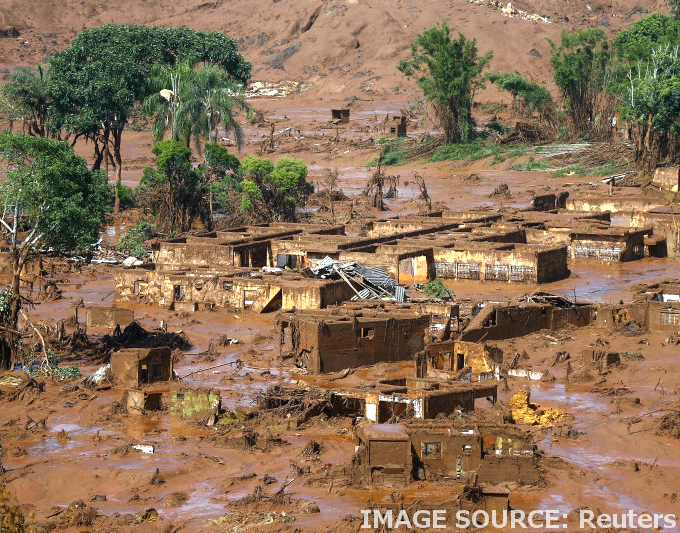Brazil spill pinned on design
 Investigators say a string of construction and design flaws led to last year’s fatal Samarco mine disaster in Brazil.
Investigators say a string of construction and design flaws led to last year’s fatal Samarco mine disaster in Brazil.
The catastrophic collapse of a tailings dam that killed 19 people has become the subjects of a big compensation battle between BHP, its partner Vale, and the Brazilian Government.
A report released after 10 months of investigation found “unplanned occurrences” back when the dam was being built created the conditions for the failure years later.
There were also changes in the dam's design in 2011 and 2012 that left it with inefficient drainage.
This caused “liquefaction” in the dam wall, weakening the soil in the wall and making it structurally deficient.
Additionally, the investigators applied a portion of blame to a series of three small seismic shocks that occurred 90 minutes before the collapse, which was “likely to have accelerated the failure process that was already well advanced,” the report said.
Vale, Samarco and BHP brought in law firm Cleary Gottlieb Steen and Hamilton to investigate the failure, as well as commissioning geotechnical specialists, led by Dr Norbert Morgenstern, a university professor in civil engineering.
“In November 2015, BHP Billiton committed to making the findings of this investigation public, and we are determined to learn from this tragedy,” BHP chief commercial officer Dean Dalla Valle said in a statement.
“This important technical study will improve our understanding of what happened at Samarco.
“We have shared these findings so that the sector can learn from the dam failure and develop and implement further standards that can help prevent a similar event like this happening again.”
Brazil's federal police are not happy with the response yet, after formally accusing the joint venture of wilful misconduct in June.
“Samarco has long claimed it performs good practise but the report did not demonstrate this,” prosecutor Carlos Eduardo Pinto told Reuters.
“Quite the opposite, it showed the company altered the project in a way that would not have been permitted.”
BHP has put aside more than $3 billion to deal with the disaster, but reportedly intends to appeal an $8 billion public civil claim.








 Print
Print